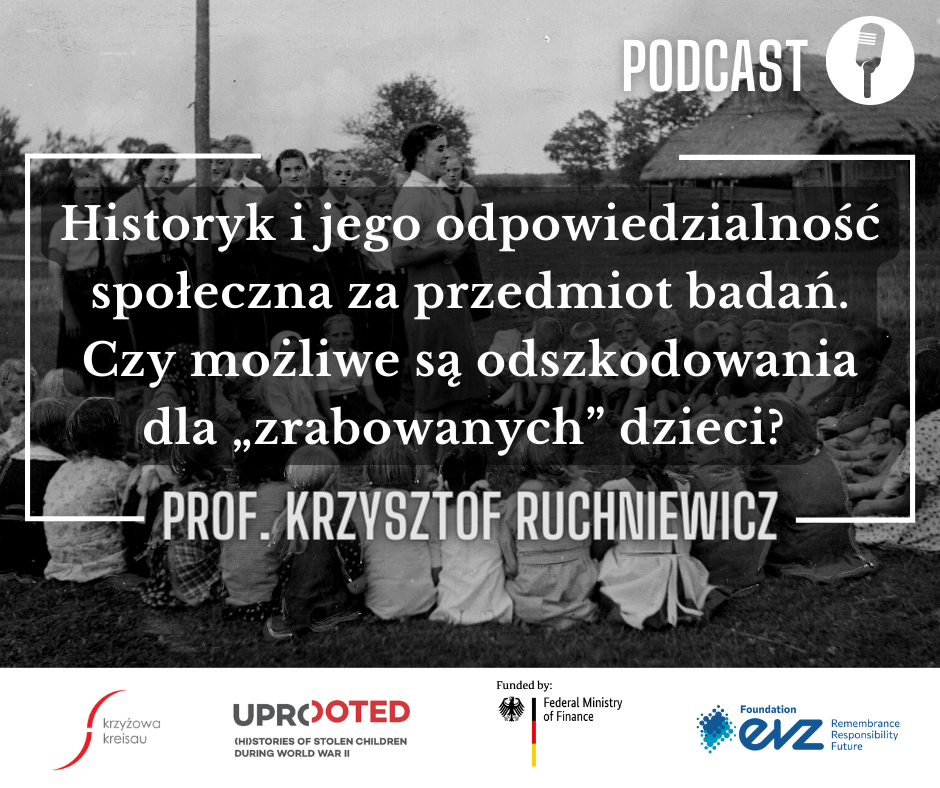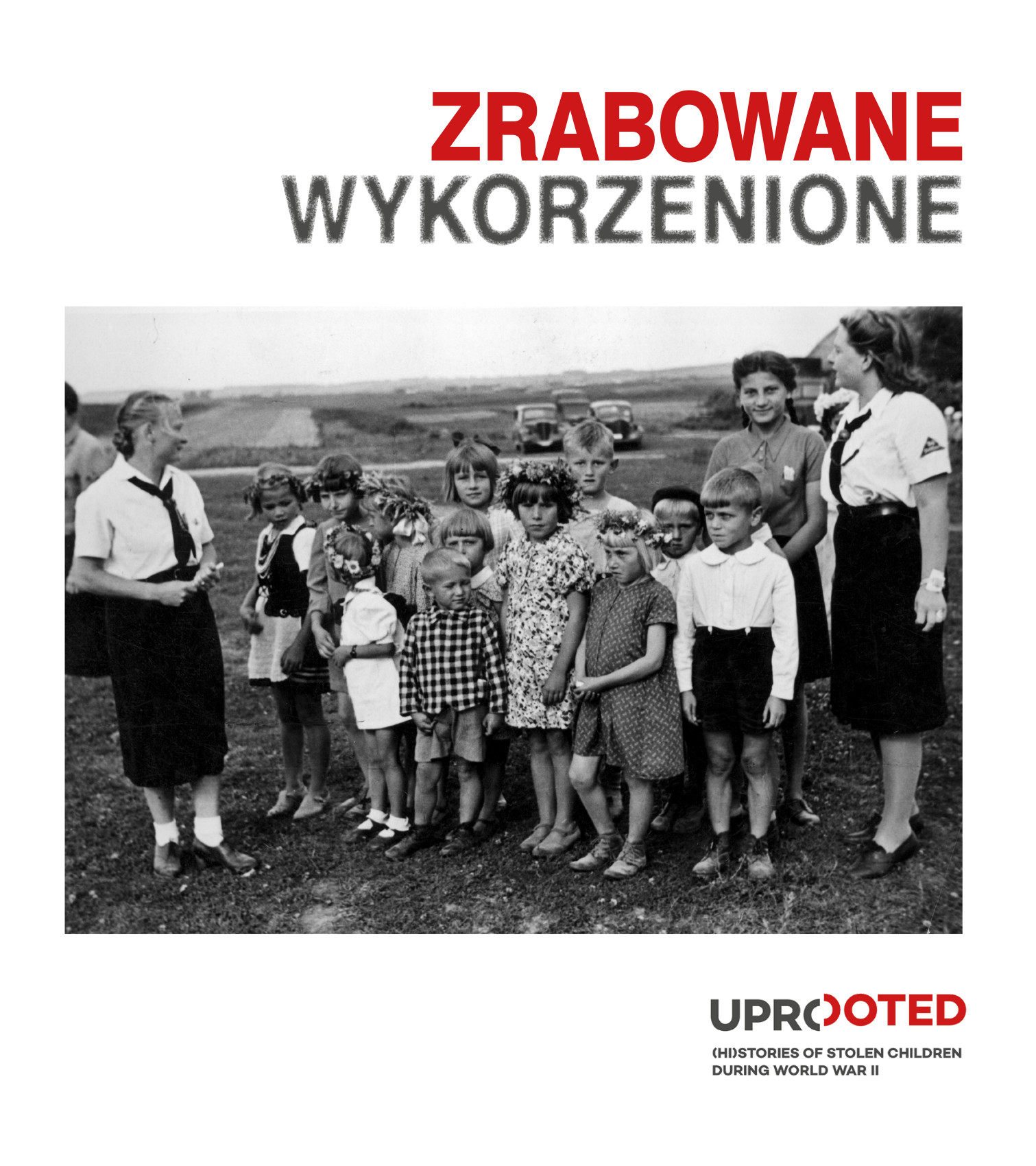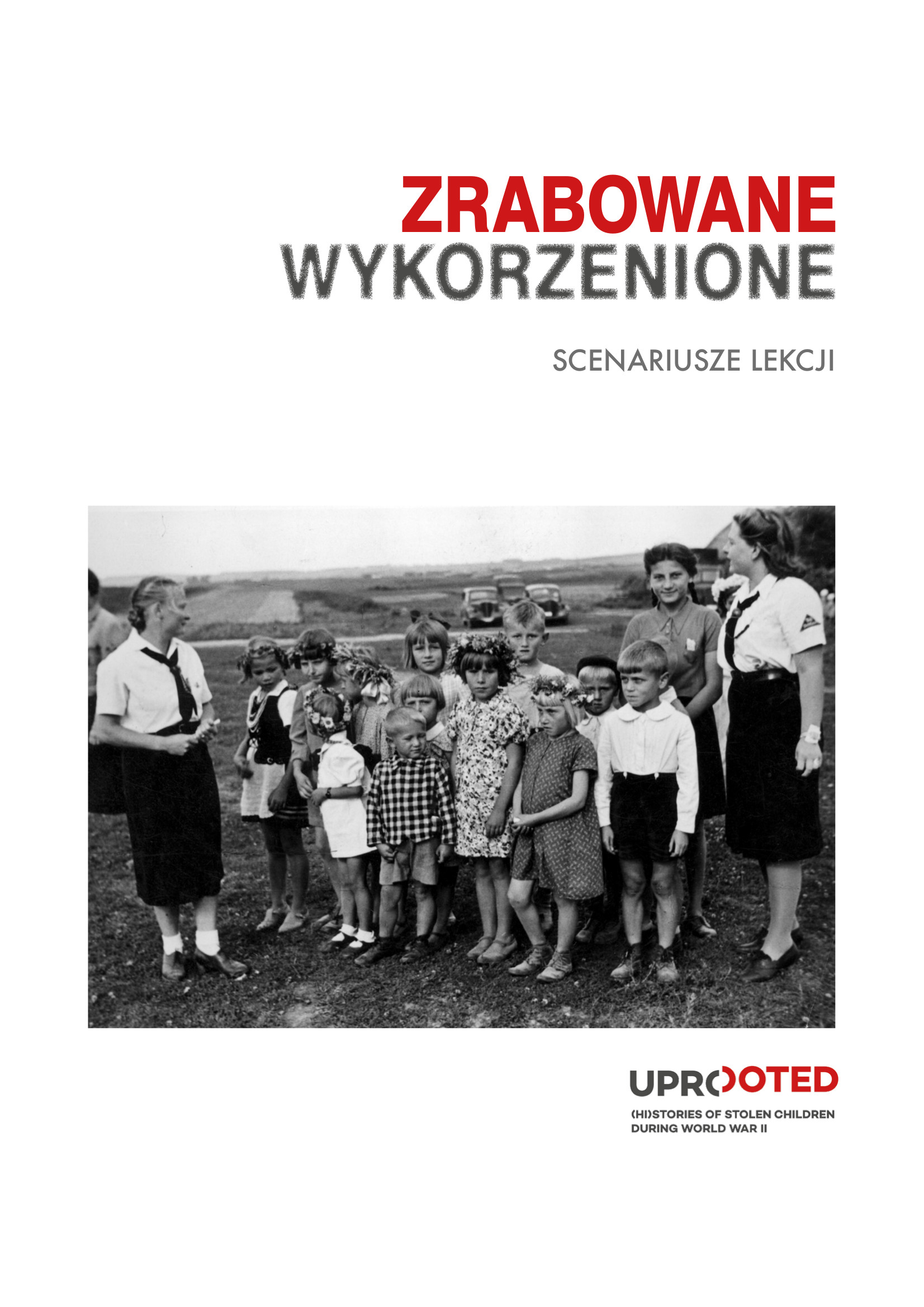
We invite you to listen to a conversation with Prof. Krzysztof Ruchniewicz, historian, German scholar, on the presence of the history of "stolen" children in scientific and media circulation, social responsibility of a historian's work and the rules of compensation for the victims of the Third Reich.
The conversation, prepared in the form of a podcast, is part of the educational project "UPROOTED. Plundered / uprooted. The fate of children taken from their families by the German occupying authorities during the Second World War".
The podcasts of the Krzyżowa Foundation can also be listened to on the most popular podcast platforms: anchor.fm, Spotify, as well as on: Google Podcast and Breaker.
Read more: UPROOTED. PODCAST || The historian and his social responsibility for the object of research. Is...

We would like to present you with a publication which aims to tell the story of Polish " stolen" children. It consists of two texts. The first, by Anna Malinowska, presents the main principles of the German policy of stealing children from occupied countries. She discusses them on the example of activities of Lebensborn, one of the main Nazi organisations responsible for obtaining racially suitable children. The second, by Katarzyna Kaczorowska, describes post-war attempts to restore stolen children to Poland and shows how today, in Poland and Germany, these children, no longer children but very old people, are treated - also in legal terms.
Both texts appeared in an English-language collection of essays on the history of "stolen" children from Central and Eastern Europe, which is available on our website: A collection of historical essays about the “stolen” children. English language version.
Read more: ONLINE PUBLICATION || A collection of Polish historical essays on 'stolen' children
stories of stolen children_okladka.jpg)
We would like to present you this publication, whose aim is to present the history of the “stolen” children from Central and Eastern Europe. It consists of texts written by authors coming from Germany, Poland, the Czech Republic and Ukraine. They present the policy of the Nazi authorities, the process of capturing and Germanising children and, by showing the fates of particular people, how strong a mark these events left on them. The presentation of these issues from the perspective of authors coming from these four countries is also an opportunity to see how the contemporary memory of these events has been shaped in different ways.
As Dr Tomasz Skonieczny, editor of the publication, stressed in his introduction: “For many years, the story of the stolen and uprooted children was pushed to the margins of our knowledge and interest in World War II. Over the last decade, the fate of these children has, fortunately, been brought to light in Germany and Poland, thanks in part to the involvement of journalists from both countries, who discovered that many of the stolen children were still alive and ready to share their stories. It was also revealed that there is virtually no public awareness of this issue. (…)
Read more: ONLINE PUBLICATION || A collection of historical essays about the “stolen” children. English...





stories of stolen children_okladka.jpg)

